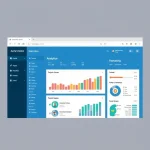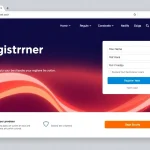Understanding Wholesale Real Estate Leads
What are Wholesale Real Estate Leads?
Wholesale real estate leads represent individuals or entities that are potentially interested in selling their properties. These leads are crucial for real estate wholesalers who act as intermediaries between motivated sellers and investors looking to purchase properties at a discount. Unlike traditional real estate sales, wholesalers don’t actually buy the properties; instead, they secure contracts to buy the property and then sell those contracts to investors. This strategy enables them to profit without incurring the costs associated with property acquisition.
Wholesale leads can come in various forms, including motivated sellers who may be facing financial difficulties, divorce, or other personal situations that lead them to sell their homes quickly. Understanding how to identify and acquire these leads is essential for success in the wholesaling business. To gain a competitive edge, wholesalers often seek targeted leads that show signs of distress or a genuine urgency to sell, such as Wholesale Real Estate Leads that can be acquired through various channels.
The Importance of Targeted Leads in Wholesaling
In the world of real estate wholesaling, not all leads are created equal. Targeted leads are essential for wholesalers looking to maximize their efficiency and profitability. By focusing on leads that demonstrate a genuine motivation to sell, wholesalers can increase their chances of closing deals. When leads are filtered based on specific criteria—such as property condition, seller motivation, or geographic location—wholesalers can prioritize their outreach efforts and tailor their marketing strategies.
Using targeted leads helps wholesalers minimize wasted resources on cold calls and marketing campaigns that yield low returns. Instead, they can engage with prospects who are more likely to convert, ultimately leading to faster sales cycles and higher profitability. This focused approach not only streamlines the wholesaler’s process but also builds a reputation for efficacy and reliability in the marketplace.
How to Identify Motivated Sellers
Identifying motivated sellers is a critical skill every wholesaler must develop. Here are several effective methods:
- Property Distress Indicators: Properties that show signs of neglect or require significant repairs often indicate that the owner is motivated to sell. Wholesalers can look for houses with overgrown lawns, broken windows, or noticeable wear and tear.
- Online Research: Websites like Zillow and Realtor.com can provide valuable data about properties that have been listed for an extended period. Such listings might suggest a motivated seller willing to negotiate on price.
- Public Records: Foreclosure notices, tax delinquencies, and probate records are excellent sources for finding homeowners who may be motivated to sell due to financial stress or personal circumstances.
- Networking: Establishing relationships with real estate agents and local investors can open avenues to discover motivated sellers directly. Networking provides insights into properties about to be listed or those needing to be sold quickly.
By identifying these sellers early on, wholesalers can position themselves as problem-solvers, offering quick sales solutions that benefit both parties.
Proven Techniques to Generate Wholesale Real Estate Leads
Utilizing Online Platforms and Social Media
In today’s digital age, leveraging online platforms and social media is an essential strategy for generating wholesale real estate leads. Platforms like Facebook, LinkedIn, and Instagram allow wholesalers to connect with potential sellers and investors on a large scale. Here’s how to make the most of these platforms:
- Engaging Content: Create and share informative content that establishes your authority in the wholesaling space. This could include property investment tips, market trends, or case studies highlighting successful deals. High-value content can attract leads and facilitate interactions.
- Targeted Advertising: Use social media advertising tools to target specific demographics. Ads can be designed to reach homeowners facing financial distress, offering them a chance to sell their properties quickly and effortlessly.
- Local Groups and Forums: Participate in local community groups and online forums related to real estate. Engaging in discussions can help identify individuals looking to sell while simultaneously building your credibility.
Building a robust online presence helps wholesalers engage with potential leads effectively, showcasing their approach and solutions while nurturing relationships within the community.
Networking and Building Relationships
Though digital marketing is valuable, old-fashioned networking still plays a vital role in lead generation. Joining local real estate investment groups, attending workshops, and participating in community events can yield fruitful connections. Here are some tips for effective networking:
- Attend Trade Shows and Seminars: Industry events are excellent opportunities to meet like-minded individuals, share insights, and discuss potential deals. Establishing a network of contacts can facilitate lead generation through referrals.
- Build Relationships with Agents: Develop a rapport with real estate agents who may encounter motivated sellers. Agents can offer referrals or help wholesalers identify potential leads that fit their criteria.
- Engage in Collaborative Ventures: Collaborating with other wholesalers or real estate professionals can expand your lead acquisition efforts. Pooling resources and sharing knowledge can enhance overall success.
Wholesalers who focus on relationship-building often find that their networks become a valuable source of leads and referrals.
Leveraging Direct Mail Campaigns
While digital methods are prevalent, direct mail campaigns remain a powerful technique for reaching motivated sellers. Sending carefully crafted letters or postcards can lead to meaningful responses. Consider these points when using direct mail:
- Targeting Specific Niches: Identify farm areas with high turnover or specific demographics, such as absentee owners or pre-foreclosure listings, to tailor your mail campaigns for optimal results.
- Crafting Compelling Messaging: Write personalized letters detailing your services and how you can assist sellers in distress. Highlighting quick closing times, cash offers, or the ability to buy properties as-is can entice responses.
- Tracking Responses: Use unique call-to-action codes, phone numbers, or URLs to track the effectiveness of different mailouts. Analyzing data on responses allows wholesalers to refine their direct mail strategies.
Direct mail, when done correctly, can yield high conversion rates as it reaches potential sellers in the comfort of their homes, allowing for thoughtful consideration of their options.
Analyzing and Optimizing Your Lead Generation Strategy
Measuring Lead Quality and Conversion Rates
Once lead generation efforts are underway, assessing the quality and conversion rates of leads is crucial. Analyzing these metrics will help tailor future strategies:
- Lead Scoring Systems: Implement a lead scoring system that ranks leads based on criteria such as urgency to sell, property condition, and responsiveness. This assists in prioritizing outreach efforts.
- Conversion Metrics: Track how many leads convert into successful deals. By analyzing this data, wholesalers can identify which lead sources yield the highest return on investment (ROI).
- Feedback Mechanisms: After closing deals, gather feedback from sellers. Understanding their motivations and experiences can provide insights into improving lead qualifications and nurturing strategies.
Establishing a robust performance tracking system helps optimize lead generation while increasing efficiency and profitability.
Adjusting Strategies Based on Market Trends
The real estate market is constantly evolving, and wholesalers must adapt their strategies accordingly. Here are ways to stay ahead:
- Market Analysis: Regularly review local market data, including pricing trends, inventory levels, and economic indicators. Understanding current conditions will help forecast shifts in seller motivations and property availability.
- Competitor Analysis: Observe competitors in the wholesaling space. Understanding their strategies can offer valuable insights and opportunities for differentiation.
- Flexibility in Methods: Be open to modifying lead generation techniques based on market changes. For instance, during economic downturns, motivated sellers may become more prevalent, warranting a stronger focus on direct outreach efforts.
Staying informed and responsive to market dynamics ensures that wholesalers remain competitive when generating leads.
Implementing Feedback Loops and Continuous Improvement
Continuous improvement is crucial for sustainable growth in lead generation. Implementing feedback loops allows wholesalers to refine their tactics systematically:
- Post-Campaign Reviews: After finishing lead generation campaigns, analyze their performance. What worked well? What didn’t? Use these reflections to optimize future campaigns.
- Seller Insights: Engage with sellers to gather insights on their decision-making processes. Understanding their motivations can refine how wholesalers approach potential clients.
- Team Feedback Sessions: If working with a team or virtual assistants, regularly hold feedback session meetings to discuss what changes could enhance outreach efforts and improve results.
With integrated feedback mechanisms, wholesalers can iterate on their processes, deploying more effective lead generation strategies over time.
Best Practices for Engaging Potential Sellers
Creating Compelling Offers that Attract Sellers
The cornerstone of successful wholesaling is crafting attractive offers that grab potential sellers’ attention. Here are best practices:
- Clarity and Simplicity: Make your offers clear and concise. Sellers should quickly understand how you can help them and the benefits of working with you, such as quick cash offers or no repairs needed.
- Highlight Benefits: Instead of just stating what you offer, focus on the emotional benefits. Stress how working with you can relieve stress and provide a hassle-free selling experience.
- Use Testimonials: Share past successes and testimonials from satisfied sellers. Authentic feedback builds trust and can be a powerful persuading factor.
Attractive offers will resonate with sellers, prompting them to consider your services seriously.
Communicating Effectively with Prospects
Effective communication is pivotal in persuading potential sellers. Here’s how to communicate well:
- Active Listening: Pay careful attention to sellers’ needs and concerns. Showing empathy helps build rapport, making sellers feel valued.
- Personalization: Tailor interactions to address specific seller circumstances. Using their name and recalling previous conversations can foster connection.
- Follow-Up Strategies: Implement a structured follow-up plan. Consistent follow-ups demonstrate your interest and commitment, often leading to successful outcomes.
Strong communication fosters relationships that encourage sellers to reach out when ready to sell their properties.
Building Trust and Long-term Relationships
Trust is a critical element in any seller-wholesaler interaction. Building long-term relationships can lead to continual business and referrals. Here are ways to foster trust:
- Transparency: Be open about your processes, fees, and any other variables in the transaction. Transparency builds integrity in the eyes of potential sellers.
- Consistent Engagement: Stay in touch with past leads, even if a deal didn’t close. Sharing valuable information or market updates keeps you top-of-mind for future opportunities.
- Valuable Resources: Provide sellers with resources that can assist them, regardless of whether they choose to work with you right away. Whether it’s market insights or tips for preparing a home for sale, demonstrating your expertise builds goodwill.
Building trust creates a solid foundation that increases the chances of repeat business and referrals.
Tools and Resources for Tracking Wholesale Real Estate Leads
CRM Solutions for Lead Management
Managing leads efficiently is critical for wholesalers, and utilizing a robust customer relationship management (CRM) solution is essential. Here are key features to look for in a CRM:
- Lead Tracking: A good CRM will allow you to track all interactions with leads, providing insights into their behaviors and preferences over time.
- Pipeline Management: Effective CRM solutions offer pipeline management tools that help visualize the stages of each deal, making it easier to manage multiple leads.
- Integration Capabilities: A CRM should integrate seamlessly with other tools (like email marketing or social media platforms) to streamline processes.
Investing in a quality CRM can significantly enhance your lead management capabilities and improve overall productivity.
Using Data Analytics for Better Decision Making
Data analytics can play a vital role in refining leads and optimizing strategies. By leveraging analytics, wholesalers can:
- Identify Trends: Analyze market trends, pricing data, and seller behaviors to create targeted strategies that meet changing demands.
- Gauge Effectiveness: Use performance analytics to evaluate the ROI from different lead sources, helping to inform where to allocate marketing budgets and efforts.
- Predict Future Leads: Utilize historical data to predict potential future leads based on market cycles and seller patterns.
Harnessing the power of data analytics enhances the wholesaler’s ability to make informed business decisions that drive success.
Finding the Right Real Estate Software
Selecting the appropriate software tools for managing real estate transactions and leads is critical for efficiency. Important software types for wholesalers include:
- Lead Generation Tools: Use software like PropStream or BatchLeads that provide access to motivated seller lists and allow for advanced searches based on specific criteria.
- Marketing Automation Software: Leverage platforms that can automate email campaigns, social media postings, and even direct mail, streamlining your marketing efforts.
- Analytical Tools: Utilizing software that can aggregate data, provide insights, and track performance metrics is crucial for strategic decision-making.
The right software tools synergize to enhance productivity, ensuring that wholesalers can focus on building relationships and closing deals rather than getting bogged down in administrative tasks.








